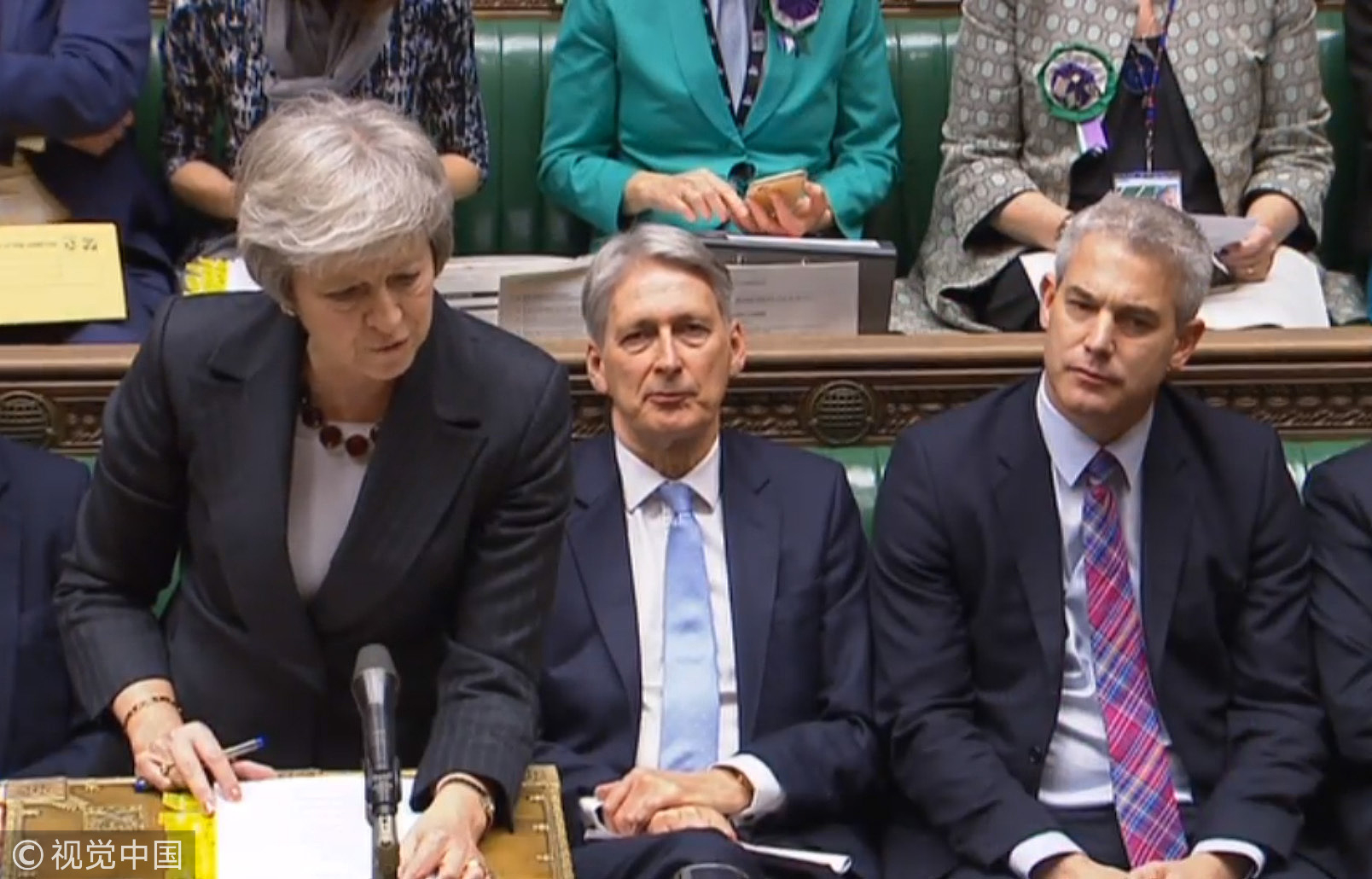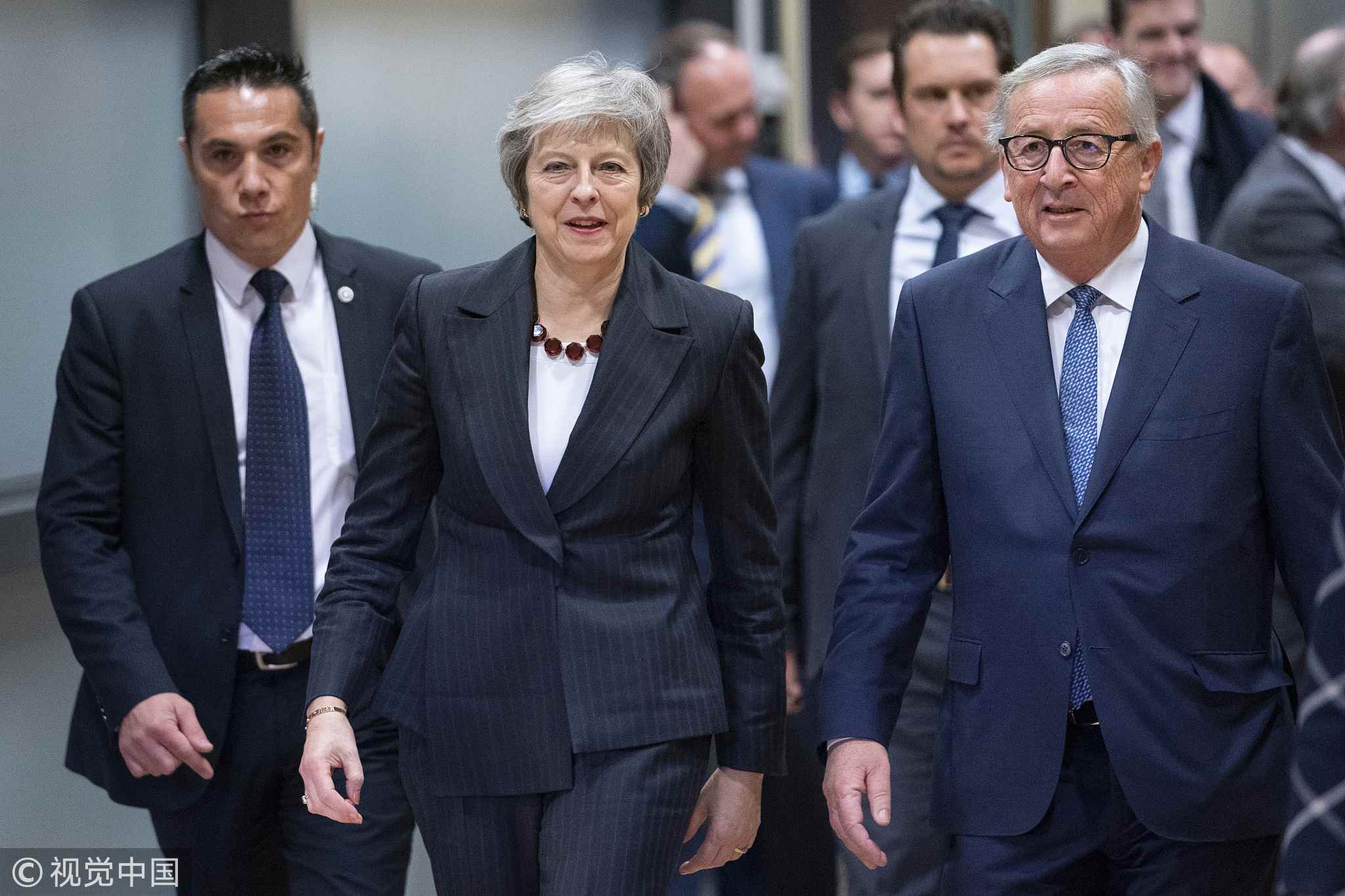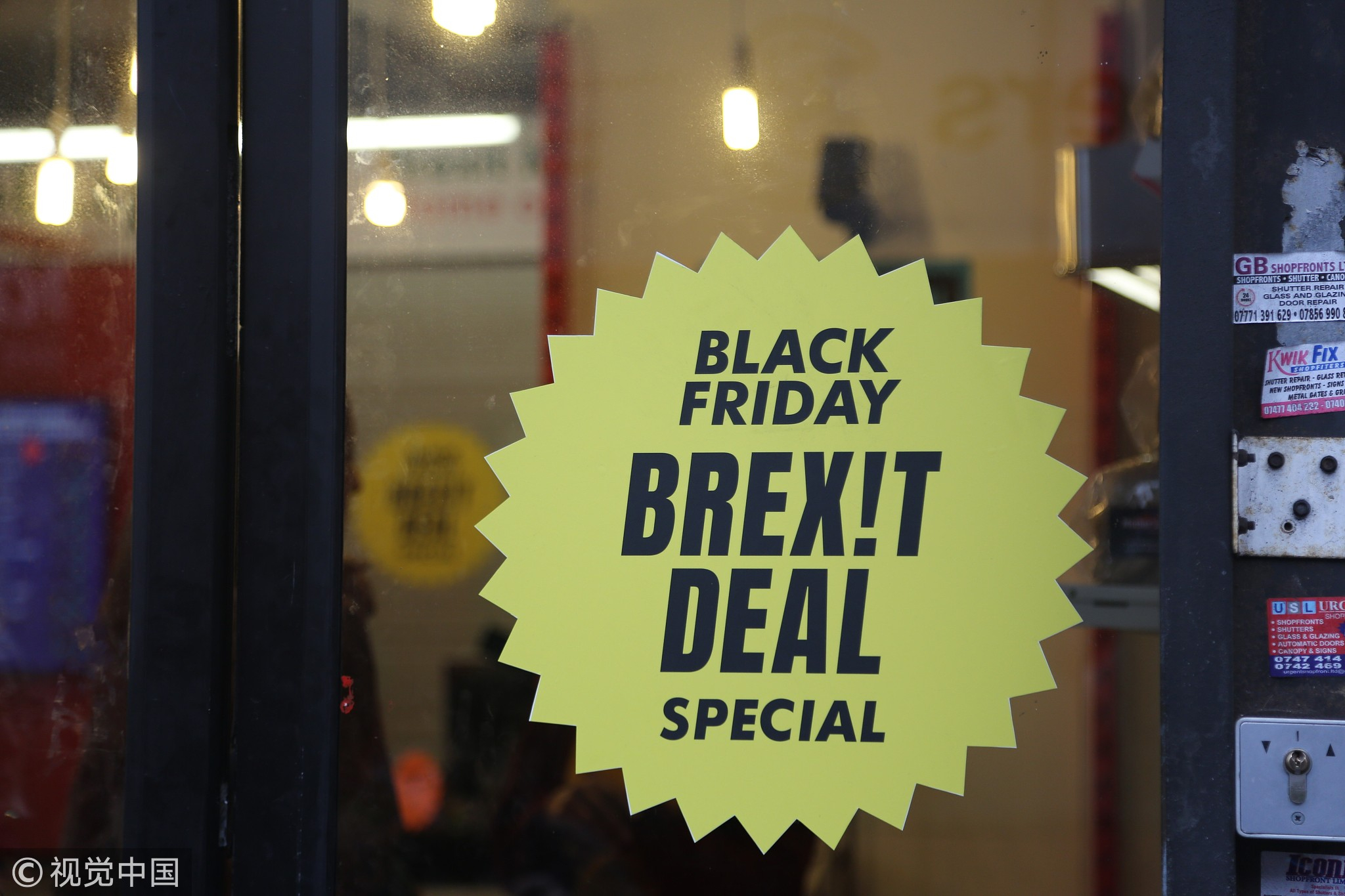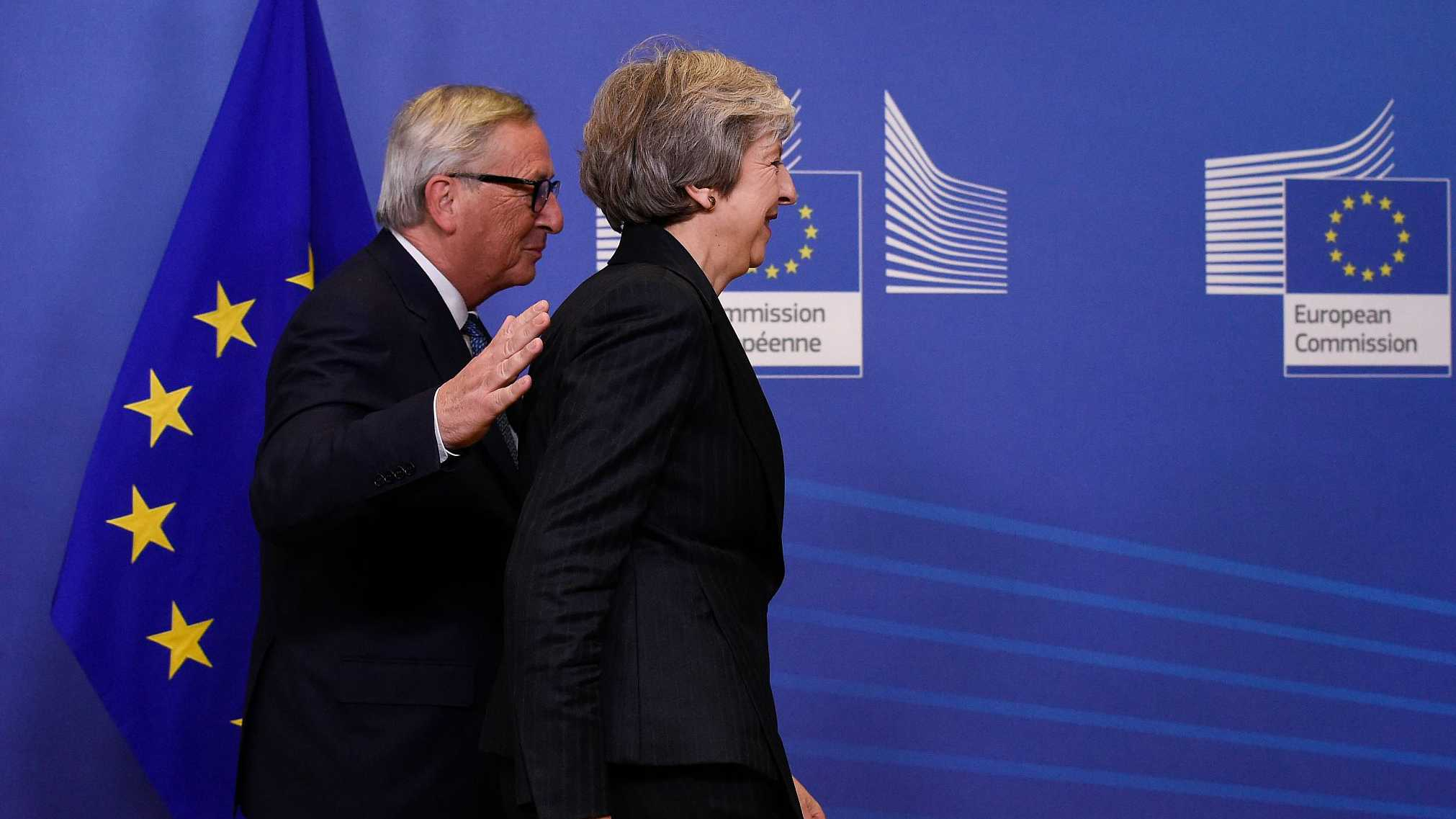Editor's note: Tom Fowdy is a UK-based political analyst. The article reflects the author's views, and not necessarily those of CGTN.
Theresa May has traveled to Brussels to attend a European summit whereby officials have the opportunity to formally reject or approve the proposed deal concerning Britain's departure from the European Union (EU). The summit comes after a backlash that the Prime Minister is facing for the agreement home, most critically from voices within her own party and parliamentary partner the Democratic Unionist Party, putting pressure on her to try and force through last-minute concessions.
Although observers should expect a positive outcome on the agreement and an endorsement by European leaders, this is not likely to grant May any leverage over her domestic critics. For the most adamant Brexiters, this summit will only serve to perpetuate calls of disappointment and capitulation to European demands, regardless of its significance to the UK's economic interests above a harder Brexit.
Since the deal was declared some time ago, opposition to it within parts of the Conservative Party has been consistent. Theresa May, on the other hand, has been equally stubborn on her insistence that the agreement is the only option and has been scrambling to maintain her party's loyalty.

Prime Minister Theresa May, Chancellor of the Exchequer Philip Hammond and Brexit Secretary Stephen Barclay, during Prime Minister's Questions in the House of Commons, London, November 21, 2018. /VCG Photo
Prime Minister Theresa May, Chancellor of the Exchequer Philip Hammond and Brexit Secretary Stephen Barclay, during Prime Minister's Questions in the House of Commons, London, November 21, 2018. /VCG Photo
While these voices from within the party are loud and disruptive, with enough clout to ruin the deal's parliamentary chances, they have so far proved ineffective in their bid to try and end her premiership prematurely. Jacob Rees Mogg's call to try and get enough MPs to convene the “1992 committee” and force a no-confidence vote, has flopped, for now, failing to reach the required numbers. Thus, the government remains in place but nevertheless weakened, with the pressing burden of trying to get these critics back on board.
The European summit won't really give Theresa May much relief. The core Eurosceptics are hoping that she will use the pre-meetings with Donald Tusk and Jean Claude-Junker to try and win some last-minute concessions on the given issues. This is highly unlikely. In creating this deal, European leaders have for the most part strongly endorsed it in its current form. They are of the attitude that according to their interests, set institutional rules and obligations. They have very much offered the UK as much as they can give within reason.

UK Prime Minister Theresa May and President of the European Commission Jean-Claude Juncker arrive ahead of Brexit negotiations in the Berlaymont building in Brussels, Belgium, on November. 21, 2018. /VCG Photo
UK Prime Minister Theresa May and President of the European Commission Jean-Claude Juncker arrive ahead of Brexit negotiations in the Berlaymont building in Brussels, Belgium, on November. 21, 2018. /VCG Photo
The desire is that a close relationship between the two bodies must be maintained without major disruption to vital cooperation and areas of interest, as well as some scope for Theresa May's core Brexit requests.
Such agreements are not taken lightly. Although Eurosceptics have enjoyed painting the EU as an authoritative body that imposes its will upon the UK unfairly, the reality of the system is that it works by consensus and agreement between leaders through the medium of the institutions.
European countries will often disagree on many things, but for the sake of unity opt to agree on a common position as a diplomatic norm; knowing they can trade that off for something else later. Therefore, what is being proposed here is something all other member states have largely found tolerable, even if they have a couple of issues they are individually upset with.
Thus, Theresa May's deal is likely to be approved and owing to a lot of common ground between European leaders and officials, is nevertheless unlikely to gain any major or new concessions. This will mean that even though European level approval might seem politically strengthening, it will only serve to harden the resolve of Brexiters and critics. Even though they are not demonstrating the strength to topple her government, we can expect all the same rhetoric: “Betrayal,” “Capitulation” and so on.

A sign reads "Black Friday Brexit Deal Special" on the window of "Costupper" Brexit Minimart pop-up store, set up by the People's Vote campaign group, to demonstrate predicted price rises and supply problems in south London, UK on November 23, 2018. /VCG Photo
A sign reads "Black Friday Brexit Deal Special" on the window of "Costupper" Brexit Minimart pop-up store, set up by the People's Vote campaign group, to demonstrate predicted price rises and supply problems in south London, UK on November 23, 2018. /VCG Photo
Similarly, the right-wing press such as the Telegraph, the Sun, etc. will vilify her yet again. The Democratic Unionist Party is also unlikely to budge. The opposition isn't going to change course either, because it is politically advantageous to attack a fragile government on this issue.
In that regard, a little has changed. Theresa May continues to advocate a deal that pleases nobody and faces overwhelming opposition in parliament. A European endorsement is merely a stamp of approval which doesn't convince Brexiters and cannot convince Remainers. It's going to be a struggle which goes down to the crunch of the voting day itself.
(Cover Photo: EU Commission President Jean-Claude Juncker and British Prime Minister Theresa May leave after a press briefing during a meeting at the EU Headquarters in Brussels on November 21, 2018. /VCG Photo)
(If you want to contribute and have specific expertise, please contact us at opinions@cgtn.com)





